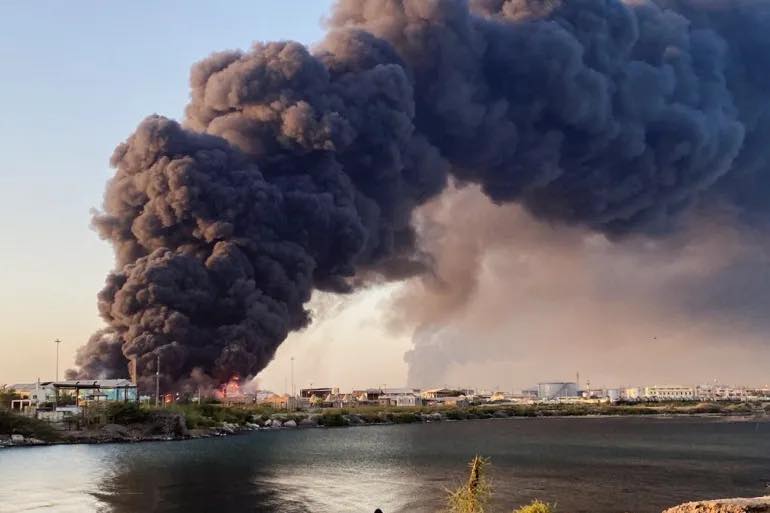Sudan to shut down oil facilities in major blow for South Sudan


In a letter dated May 09, 2025, Dr. Mohieddien Naiem Mohamed Saied, the Minister of Energy and Petroleum, said the bombing by the Rapid Support Forces (RSF) has negatively impacted oil facilities.
“The repeated attacks by RSF on facilities on the Republic of the Sudan has taken toll on both nations culminating in grave losses for both national economies and the foreign investors, including the deferred production for almost one and half years of stoppage and costs of restarting both the oil fields and the transportation systems,” read the statement.
The minister said the attacks by the rebels have rendered the government incapable of executing the exportation.
“The recent wave of drone attacks launched by RSF and its backers against civilian infrastructure has targeted oil facilities in Sudan, which are bound to have an impact on Sudan’s capability to complete export operations,” he said.
In the early morning hours of 9 May 2025, drones attacked Petrolines for Crude Oil (PETCO) Pump Station #5 in al-Hudi, resulting in grave damage to the Pump Station. While maintenance teams remain on the side, the ministry said the risk of stoppage of export operations is very high, especially when considering that PS#15 is a functioning station crucial to export operations.
The minister also recounted that in the early morning hours of 8 May 2025, drones attacked a major diesel depot in the White Nile State from which Bashayer Pipeline Company (BAPCO) withdraws diesel for operational purposes.
Ports and airports which were being used by PETCO and BAPCO to import crucial materials for the operation of the pipeline, Naiem noted, have been attacked. Both companies currently have pending shipments of critical chemicals which they are unable to receive.
The attacks on the electricity substations, including the substation inside the BAPCO MT and which was directly utilised to supply power to the loading facilities, have led to a power outage in both marine terminals and have affected the ability of the two terminals to load crude oil simultaneously.
The attacks on the fuel depots in Port Sudan and other storage facilities threaten a critical shortage in supplies of fuel, critical for operating the transportation systems.
The minister revealed that Khartoum has instructed the oil facility operators to initiate plans for a possible shutdown until the situation improves.
“With the above in mind, we have instructed both PETCO and BAPCO to deliver a fast-track roadmap to enable us to shut down the facilities. The plan will be set into action if these attacks, which jeopardise these facilities and disable us from carrying out our commitment under the AOREM, continue,” Mr Naiem stated.
The current crisis follows a major setback in February 2024, when a rupture in the Petrodar pipeline—one of two pipelines transporting South Sudanese crude through Sudan to Port Sudan—halted oil exports.
The rupture occurred in RSF-controlled northern White Nile State, near the frontline with the Sudanese Armed Forces (SAF). A clog caused by a lack of diesel at BAPCO’s pump stations led to a “gelling incident,” where the waxy Dar Blend crude solidified, causing a major pipeline break.
Repairs were delayed by ongoing military operations and security concerns, forcing Sudan to declare force majeure in March 2024, citing its inability to meet contractual obligations.
The stoppage slashed Sudan’s oil transit revenue, a critical income source, and devastated South Sudan’s economy, which relies on oil for over 90% of its foreign exchange earnings. South Sudan faced a severe financial crisis, with unpaid civil servants and warnings of potential political instability.
In Sudan, the 2024 pipeline closure deepened an already dire economic situation. The ongoing civil war between the SAF and RSF, which erupted in April 2023, had already destroyed much of the country’s infrastructure, displaced over 12 million people, and pushed half the population into acute hunger.
The loss of oil revenue, compounded by earlier sabotage, such as the destruction of the Khartoum refinery in 2023, which cost an estimated 210,000 barrels of crude, further strained Sudan’s ability to provide basic services. Rebuilding the damaged oil infrastructure was estimated to cost at least $5 billion, a figure far beyond Sudan’s current financial capacity.
sudanspost.com